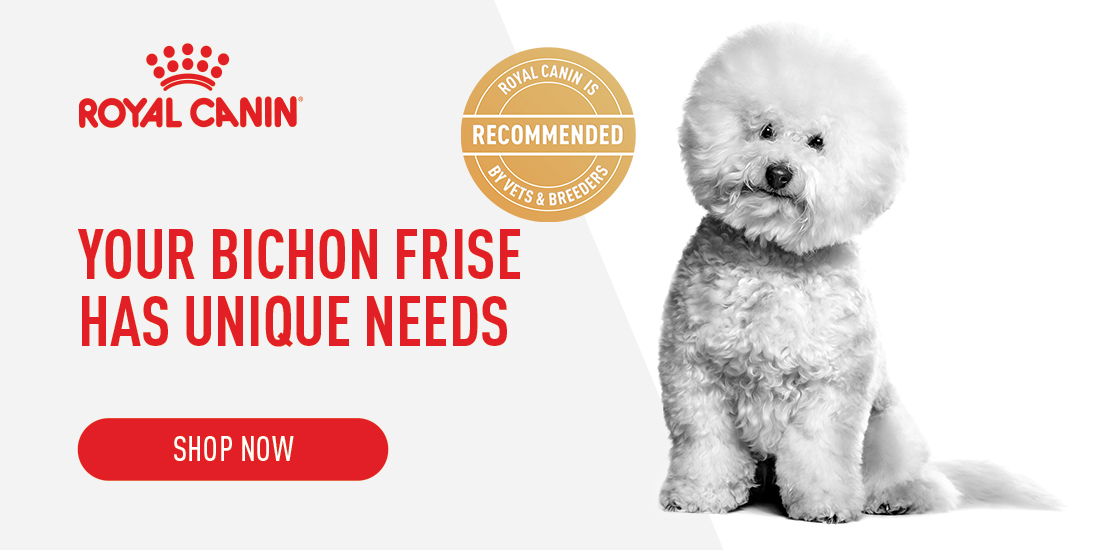Dog Breed
Bichon Frise
Freindliness
Exercise Needs
Health Issues
Barking Tendencies
Grooming Needs
Shedding Level
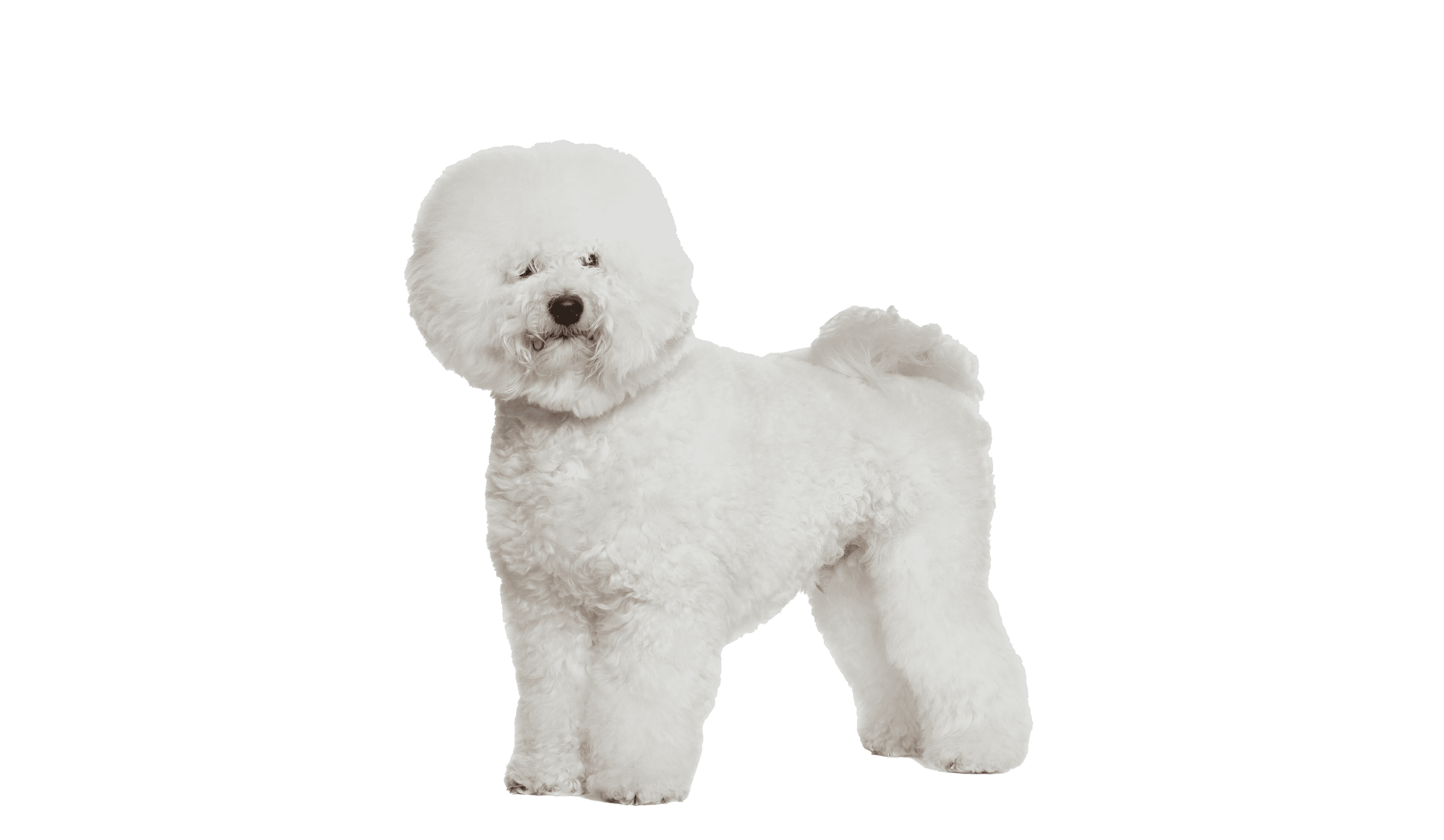

Companionable clown
Meet your shadow - the Bichon Frise is an adorable, teddy bear-like dog who just wants to stick with you, whatever you’re doing. Playful and curious, Bichons are born entertainers and can easily charm every person and pup that they meet. This makes them ideal companions for children and other dogs.
So ready to love, a Bichon Frise doesn't like to be left alone for long. Although their independent streak makes house training them a little tricky, they’ll make up for it with their fancy tricks and friendliness.
Caring for your Bichon Frise
Nutrition
Choosing the right food
Every dog is unique. From the small, flat-faced Pug to the obesity-prone Labrador Retriever. ROYAL CANIN® Breed Health Nutrition is tailor-made to address the unique needs of pure breed dogs. These breed specific formulas benefit from the latest ROYAL CANIN® research on the selection of the best protein sources, unique nutrients and tailor-made kibbles.
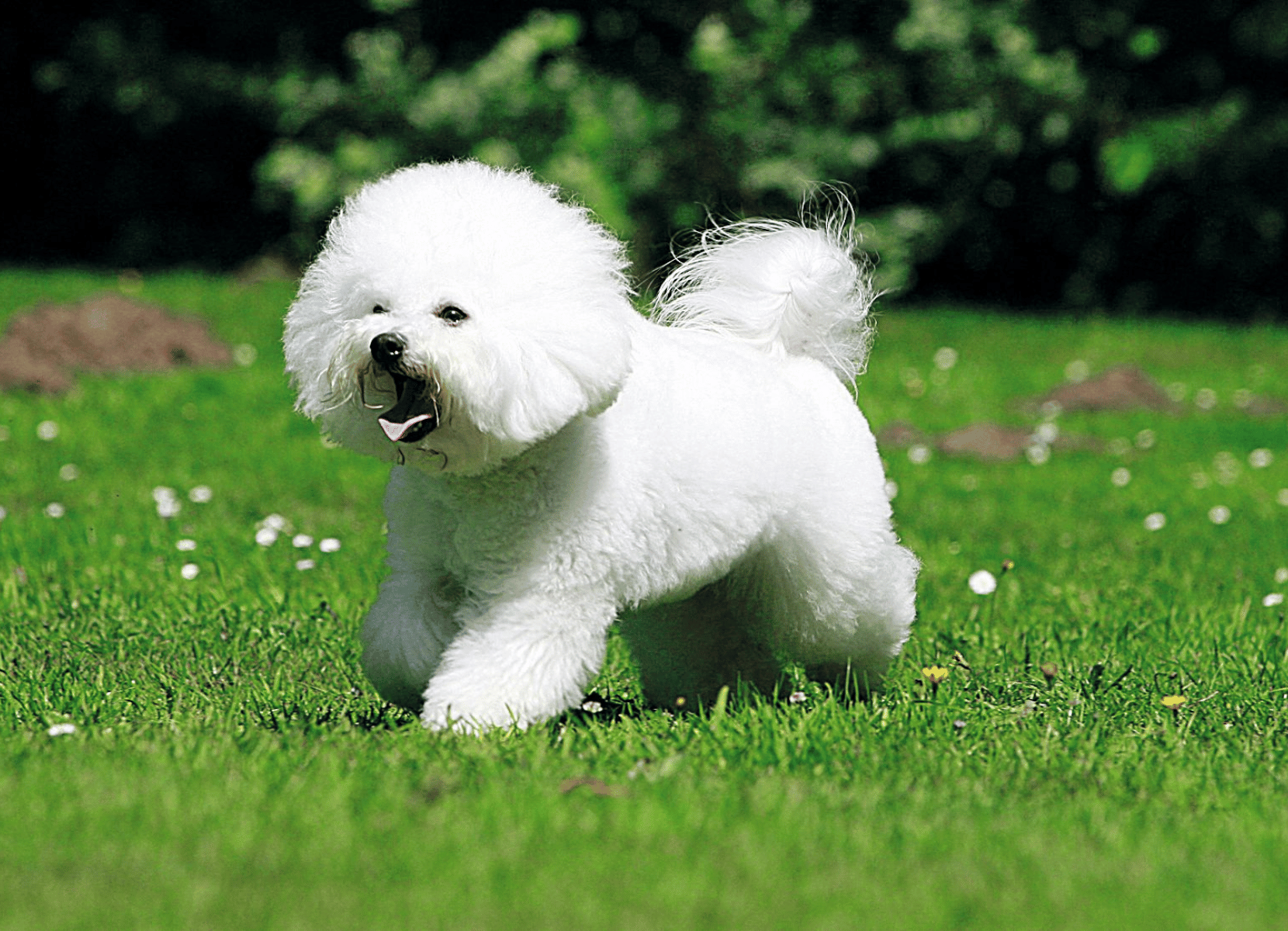
Exercising your dog
Although prone to short bursts of intense activity, like running through your home or doing laps of the garden, Bichons will happily spend the rest of time not doing much (other than following you around of course).
Bichon Frises do well on about 30 minutes of exercise a day, although this should be broken up into short sessions and involve walks and playtime. Think 1 or 2 short neighbourhood strolls, plus playtime with you (they’re partial to a game of fetch) and sniff sessions in the garden or local park.
You may be surprised at how speedy a Bichon can be - they’re naturally fast runners. This makes a fenced-in garden a must (and a lead at all times for an untrained Bichon).
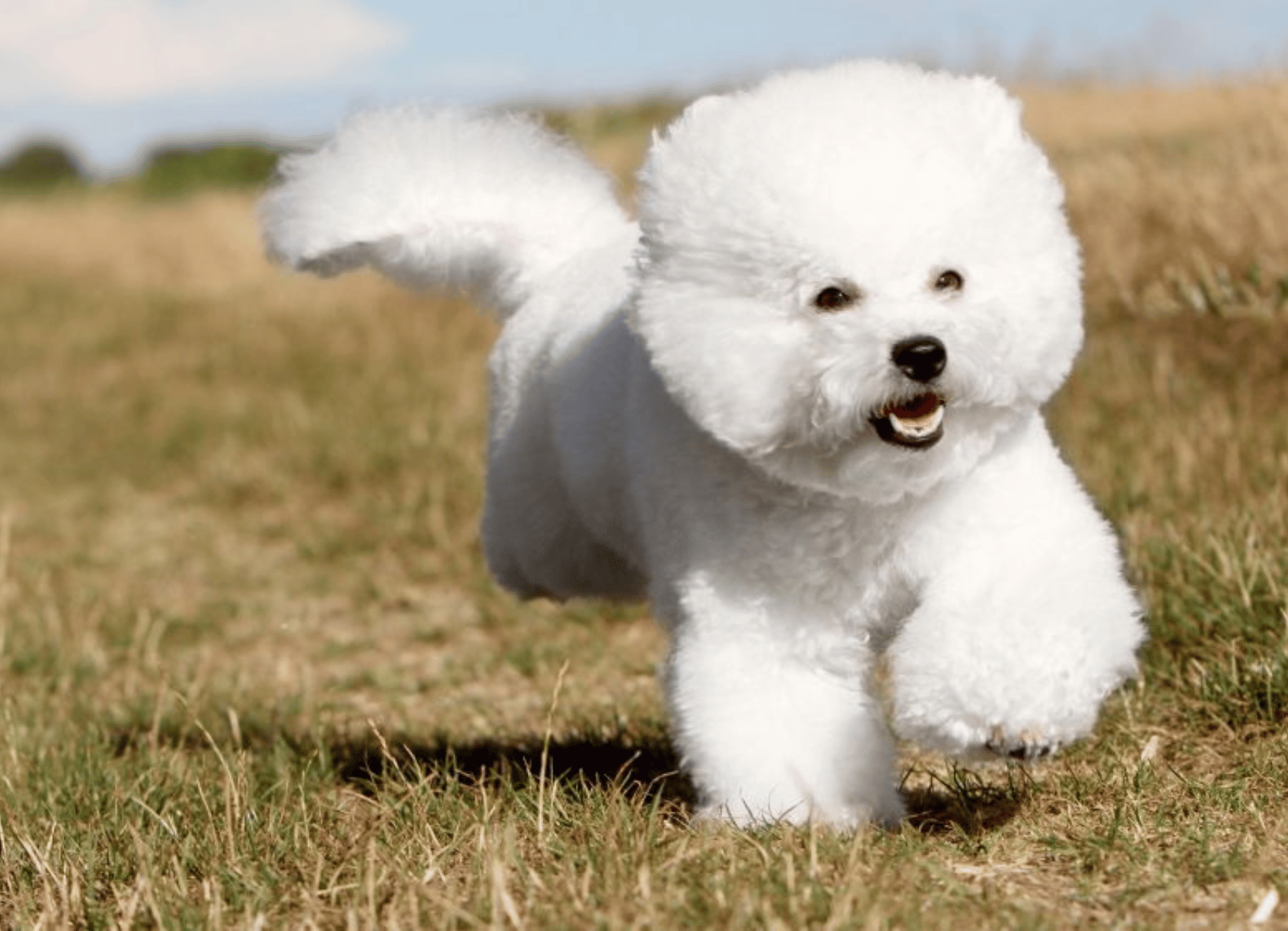
Training your Bichon Frise
With their built-in performing streak, Bichon Frises love training and learning new tricks which makes them really easy to train. But they’re renowned for being tricky to house train.
You can blame their need for independence for their struggles to master the basics like toilet training, walking well on a lead and commands including sit and stay.
Positive reinforcement works well with Bichons - they love to be rewarded with your attention when they behave well. Plus, putting them on a toileting schedule can help them learn where and when they’re supposed to go.
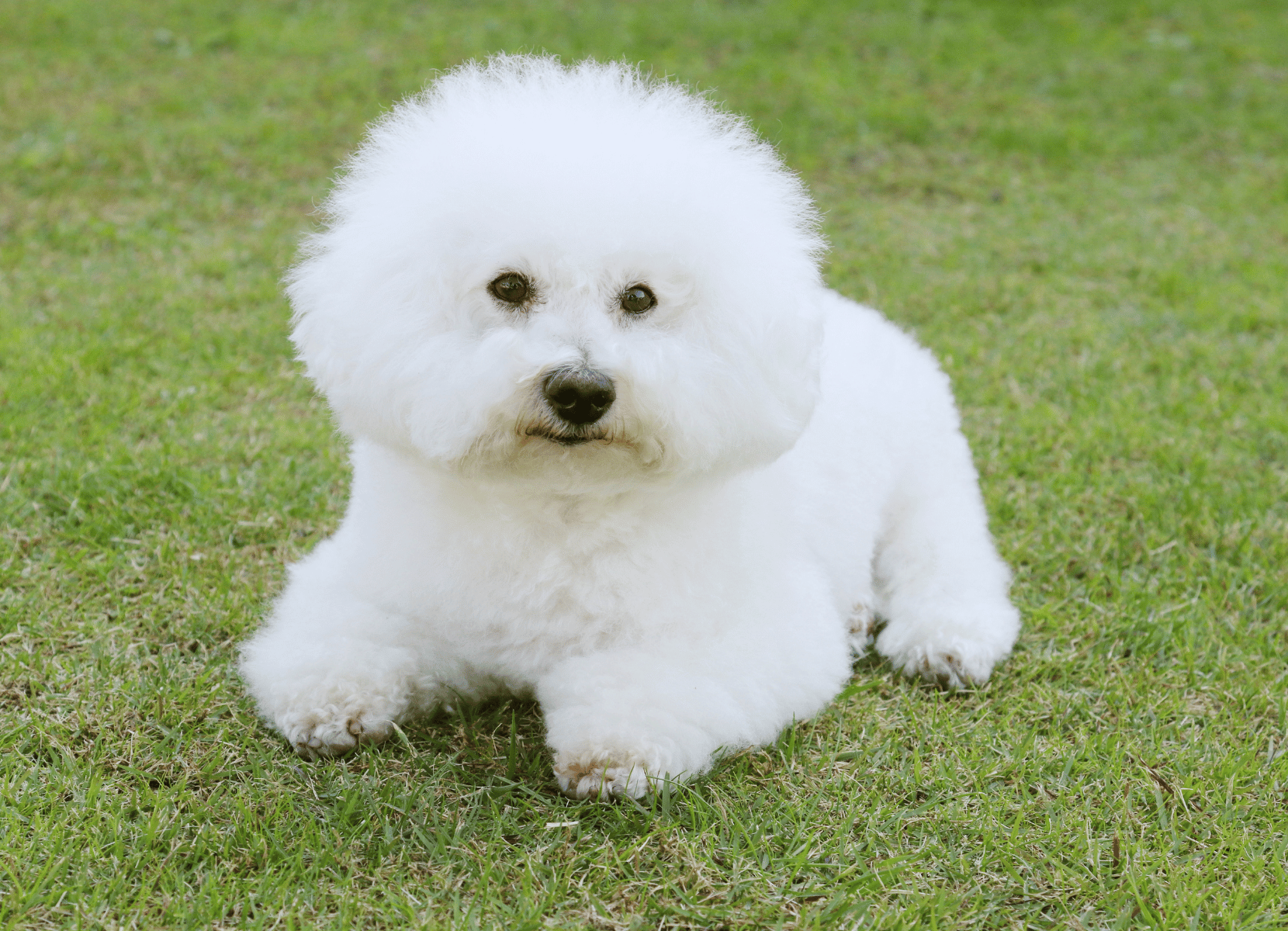
Your dog's health
By recognising health problems in Bichon Frise early you can seek advice and treatment from a veterinarian.
Reduce the risk of health problems by purchasing a puppy from a responsible breeder. Always inspect breeding facilities and breeding dogs, and never buy from a distant online seller.
Health Issues to watch out for:
Bladder Stones
Liver Issues
Skin Problems including Allergies
Eye Problems
Luxating Patella
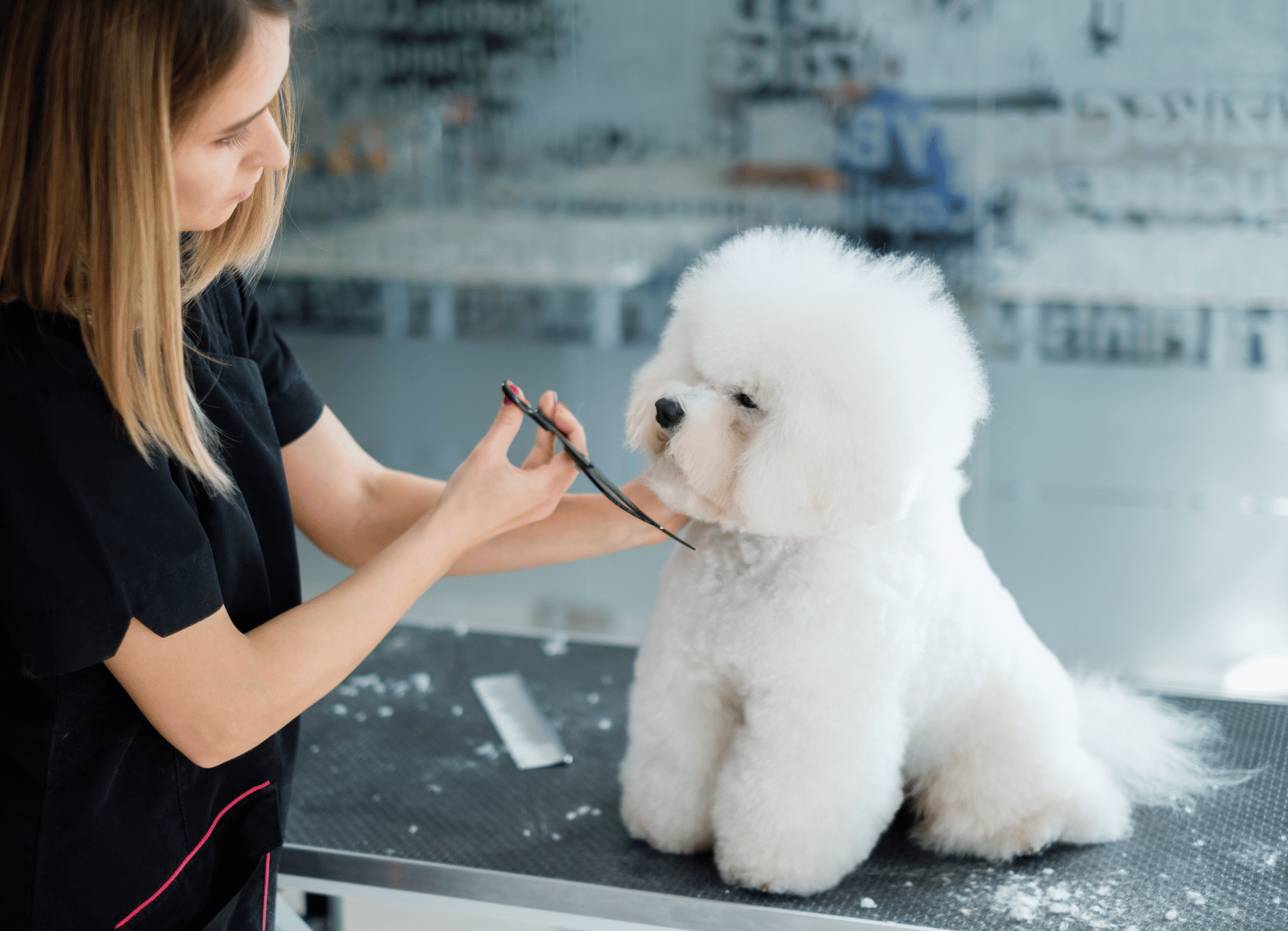
Grooming your dog
Although your Bichon Frise’s curly double coat doesn’t shed much, without the right amount of care and attention it can quickly become matted. A daily brushing routine will help keep it camera-ready and you can start brushing them when they’re a puppy. A slicker brush will get rid of the loose hair. Follow this with a dog comb to ease out any tangles.
Every week or two (or more often if they’re dirty) pop them in the bath to keep them fresh and their coat healthy. Give their coat a brush before bath time as wet hair can make it trickier to remove any matted hair.
As well as a daily brush and a regular bath, a Bichon’s coat needs a monthly trim.
Other things you should do regularly is brushing their teeth and monthly nail trims.
Key characteristics of Bichon Frises
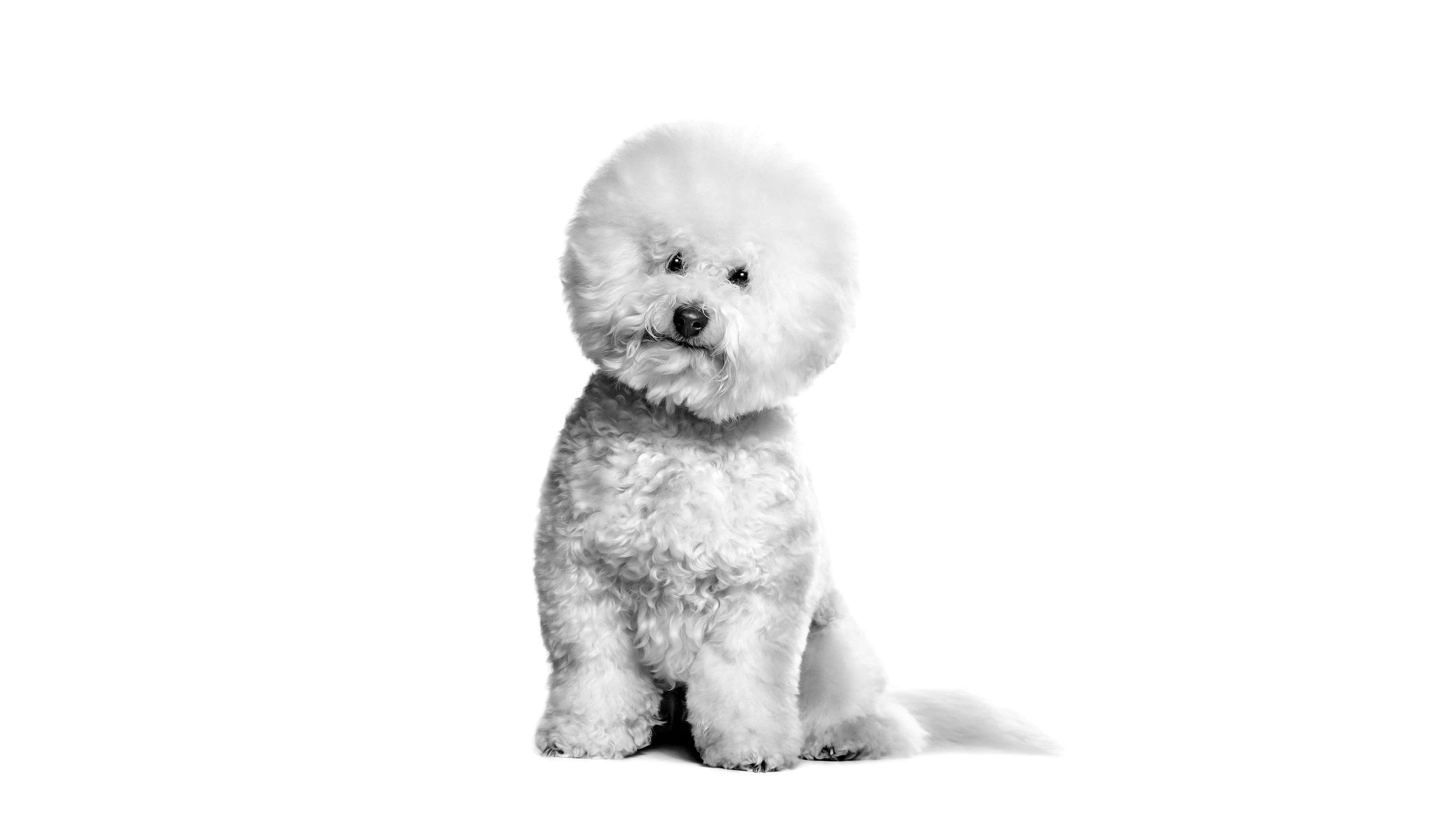

Bichon Frise FAQs
Curious about life with a Bichon Frise? These popular companion dogs are known for their hypoallergenic coats and affectionate personalities. Below are some frequently asked questions that go beyond the basics to help you better understand what it's like to live with a Bichon — whether you're already smitten or just starting your research.
Are Bichon Frises a good choice for people with allergies?
Yes, Bichon Frises are considered hypoallergenic due to their low-shedding, curly coat. While no dog is completely allergy-free, many allergy sufferers find they tolerate Bichons better than other breeds when combined with regular grooming.
How vocal are Bichon Frises compared to other small dogs?
Bichon Frises can be quite chatty, especially if bored or left alone too long. They may bark to alert you or to get your attention, but early socialisation and positive reinforcement training can help manage excessive barking.
Can Bichon Frises be left alone during the day?
Bichons are companion dogs who thrive on human interaction and may struggle with long periods alone. If you work full time, consider doggy daycare, a pet sitter, or a companion pet to keep them company.
Are Bichon Frises easy to travel with?
Yes, Bichons are small, adaptable, and often welcome travel companions. Their calm temperament and compact size make them suitable for car rides and even airline cabin travel when properly crate-trained.
What size is a fully grown Bichon Frise?
Adult Bichon Frises typically stand 24–29 cm tall and weigh between 5–8 kg. Despite their fluffy coat, they are a lightweight, compact breed that fits comfortably in small spaces like apartments or travel crates.
These FAQs offer extra insight into life with a Bichon Frise. Whether you're drawn to their allergy-friendly coat, affectionate temperament, or travel-friendly size, this cheerful breed brings joy and charm to any home ready to return the love.


